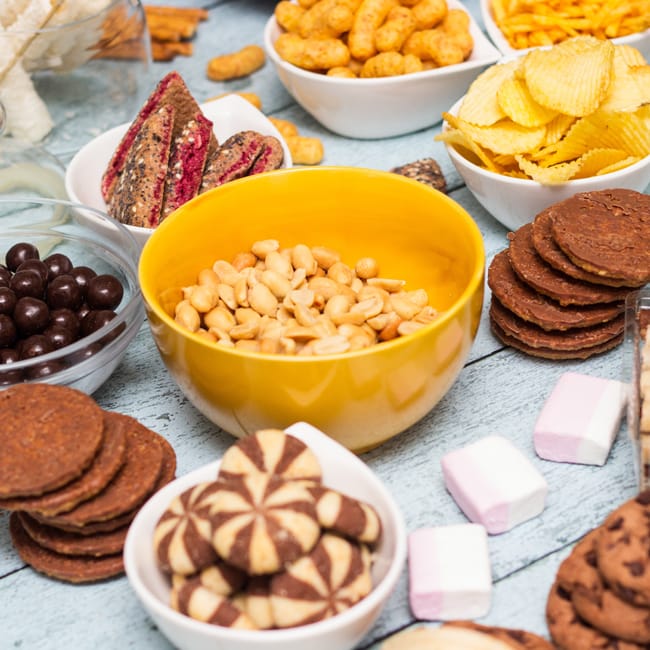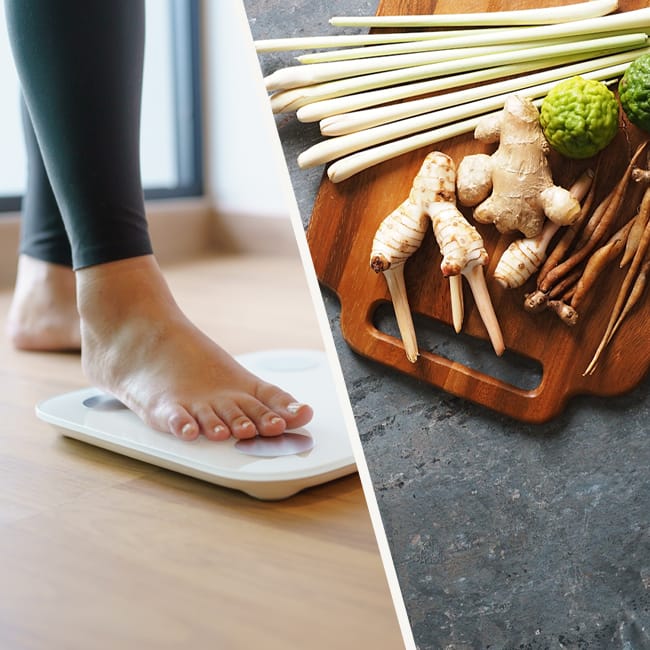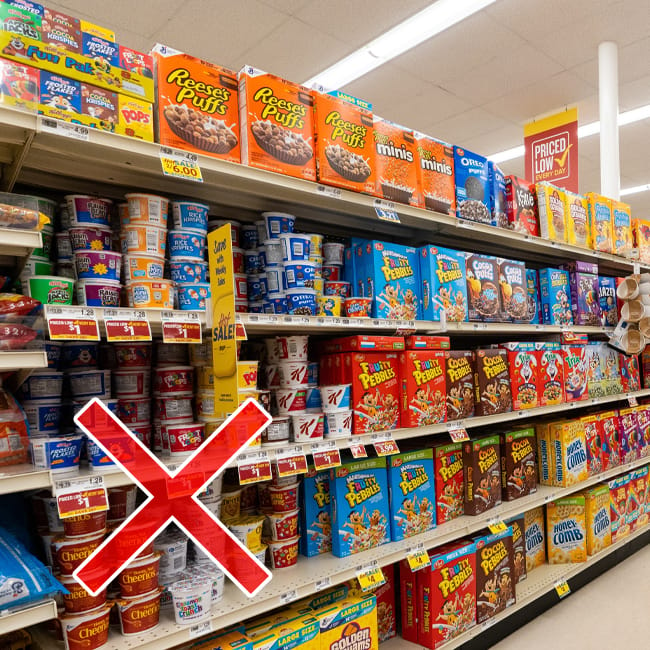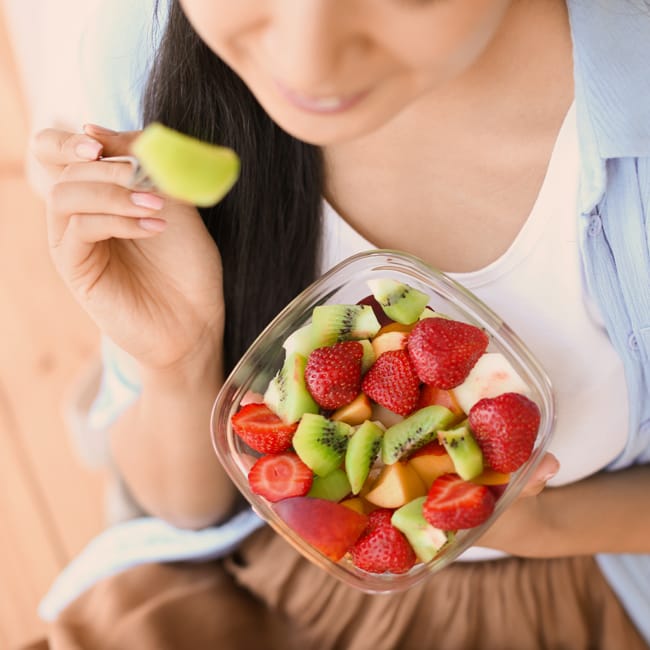It’s well-known that super-salty foods can leave you feeling bloated and sluggish. For this reason, many people attempt to curb the issue by avoiding salty snacks like chips and pretzels—but these aren’t the only culprits to look out for. Many everyday foods, including those that seem healthy, can be loaded with sodium, contributing to water retention and discomfort. This excess salt can make you feel puffier, more bloated, and, well, generally off. Knowing what deceiving products this sodium is hiding within is integral to making smarter diet choices, beating bloating, and feeling your best.
So, where is it hiding? To find out, we consulted nutrition specialist Suzanne Hyslop from Ocean Recovery. She warned against some common foods that contain surprisingly high levels of sodium, often going unnoticed. These include cottage cheese, bread, and meat substitutes. Learn more about the risks of each below.


1. Canned Soups
Canned soups are among the most convenient meals around, and they may seem nutritious—especially those that are packed with vegetables and protein. Unfortunately, most varieties are also loaded with sodium. "Even ‘healthy’ or ‘low-fat’ versions can have 800mg+ of sodium per serving," warns Hyslop. This can easily contribute to water retention, leaving you feeling puffy and sluggish throughout the day. Still craving soup? No worries! Hyslop recommends cooking up a homemade soup with fresh ingredients, which can help you control the amount of sodium. (Hot tip: You can even freeze some for later, making it just as convenient as a canned option.)

2. Processed Meats
As much as we hate to say it, there are a lot of downsides to processed meat. The sky-high sodium content is one major downfall of these deviously delicious foods. "These meats can have over 1,000mg of sodium per serving to help with preservation," Hyslop says. As a healthier alternative, try swapping in grilled chicken or other lean, unprocessed proteins.

3. Cottage Cheese
There's a lot to love about cottage cheese. It's a protein-packed, versatile, delicious ingredient. But if you want to reduce your sodium intake to avoid bloating, you may want to cut back on this food. "Most options in the supermarket are loaded with salt," notes Hyslop. If you enjoy cottage cheese, she recommends looking for low-sodium versions to reduce your salt intake while still getting the nutritional benefits. Noted!

4. Bread
Due to the fact that it doesn't taste all that salty, you may not be aware that bread can contain a great deal of sodium, making it best to limit your intake of if you want to relieve bloating. "Many breads contain 200-400mg of sodium per slice, which adds up quickly," explains Hyslop. For this reason, it's a good idea to check labels and opt for lower-sodium or whole-grain options.

5. Pickles & Olives
These charcuterie board staples could be bad needs for your bloating woes. Because they are brined, pickles and olives tend to have a lot of sodium—often over 800mg per serving, in fact. If you’re craving something tangy, "try fresh cucumber slices or unsalted olives instead," Hyslop recommends. These swaps can give you the crunch and flavor without the extra sodium. Perfect!

6. Breakfast Cereals
You likely already know all about the refined sugar most breakfast cereals are loaded with—but did you know many popular options are also surprisingly high in sneaky sodium? "Some cereals sneak in 200-300mg of sodium per serving," Hyslop warns. If you're looking for a better option, she suggests switching to plain oats (which are packed with so many health benefits) or a low-sodium granola.

7. Meat Substitutes
Vegetarian "meat" substitutes don't always equate to greater health. In fact, these plant-based meat options often rely on sodium for flavor and texture, according to Hyslop. "Many veggie burgers and meat alternatives have high sodium levels," she says, meaning they could be a major offender when it comes to bloating and sluggishness. To avoid the salt overload, check labels and choose lower-sodium options, or go for whole-food-based patties made from healthy plant proteins like lentils or beans. Yum!


























